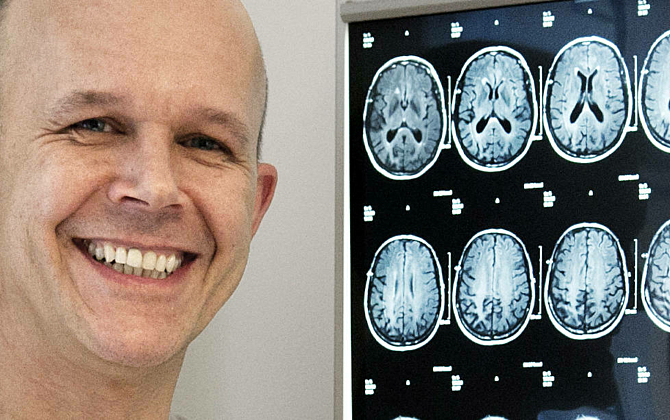A new simple bedside screening test will help doctors and clinicians to determine whether a dementia patient has Alzheimer’s disease (AD) or behavioural-variant frontotemporal dementia (bvFTD). The FRONTIER Executive Screen (FES) has been developed by Associate Professor Olivier Piguet and his team at NeuRA.
Dementia is the second leading cause of death in Australia, with more than 1,800 new cases of dementia in Australia being diagnosed each week. This is expected to grow to 7,400 new cases each week by 2050. Because they share clinical features, bvFTD is often misdiagnosed as AD. However, the two dementias affect different brain regions and require vastly different management approaches. The FES will give medical professionals the confidence to make early, accurate diagnoses in a short time-frame.
“While memory problems are the hallmark of AD, they are also very common in bvFTD and much more so than previously thought, although the way they manifest differs,” says Assoc Prof Olivier Piguet. “As such, clinicians should not rely on memory performance to distinguish between these two dementias. Rather than focusing on memory, the FES measures the integrity of complex thinking abilities, or ‘executive functions’. These functions are supported by the frontal lobes which undergoes marked pathological changes in bvFTD, but are relatively spared in AD”.
The FES assesses executive functions in around 10 minutes. While both AD and bvFTD groups obtained lower FES scores compared to healthy controls, the bvFTD group was much more impaired than the AD group. “Importantly, the FES doesn’t require special training for clinical staff to administer or interpret the results.”
Knowing the type of dementia a patient has will inform their treatment management options. The few pharmacological dementia treatments currently available provide some cognitive and functional benefits to individuals with AD, however these same benefits do not extend to people with bvFTD. Any delay in starting AD or bvFTD treatments significantly reduces their benefits, highlighting the importance of early and accurate diagnosis.
This study was supported by the National Health and Medical Research Council of Australia and the Australian Research Council and will be published in the Journal of Neurology, Neurosurgery and Psychiatry.




